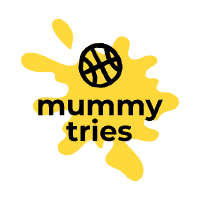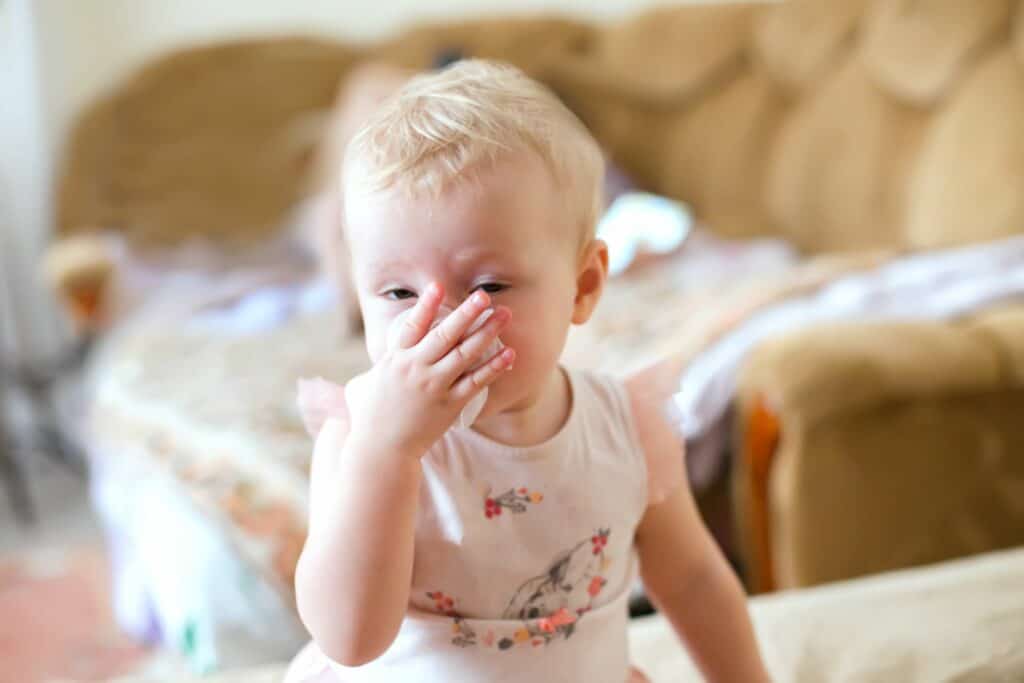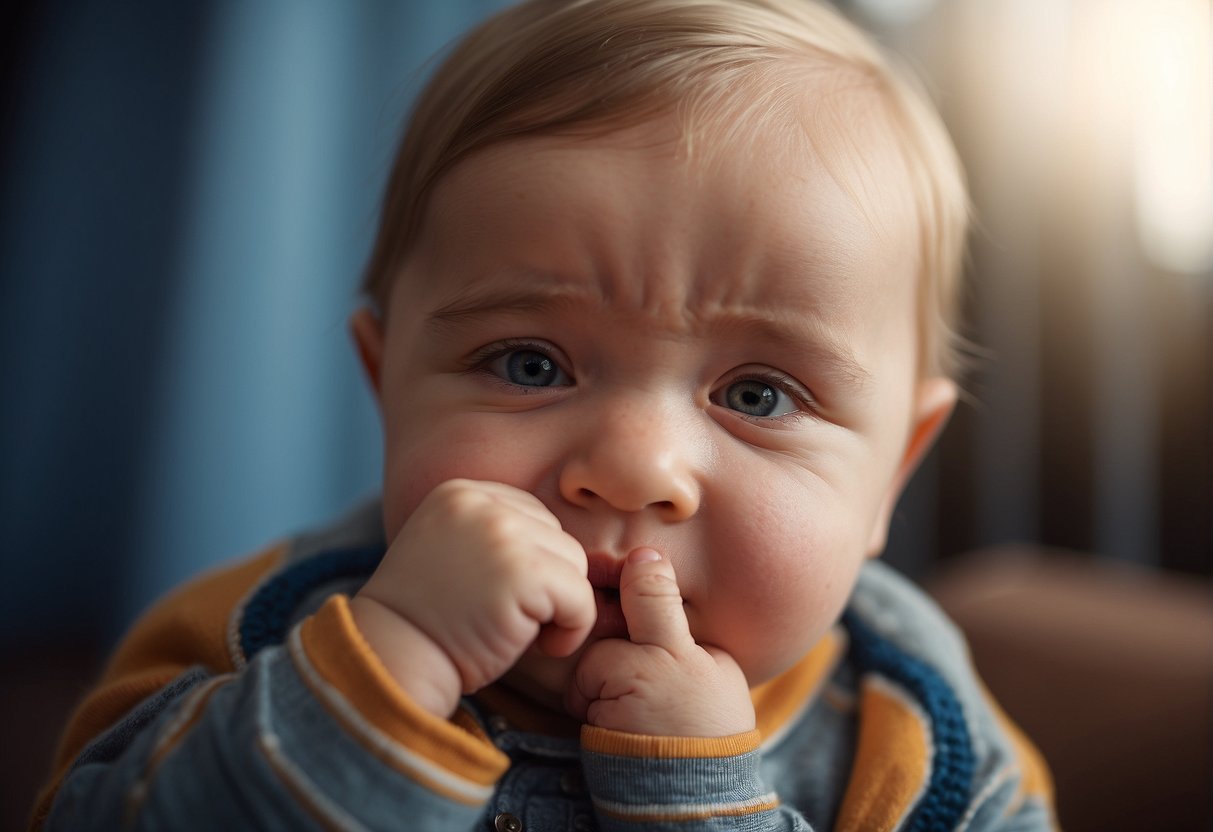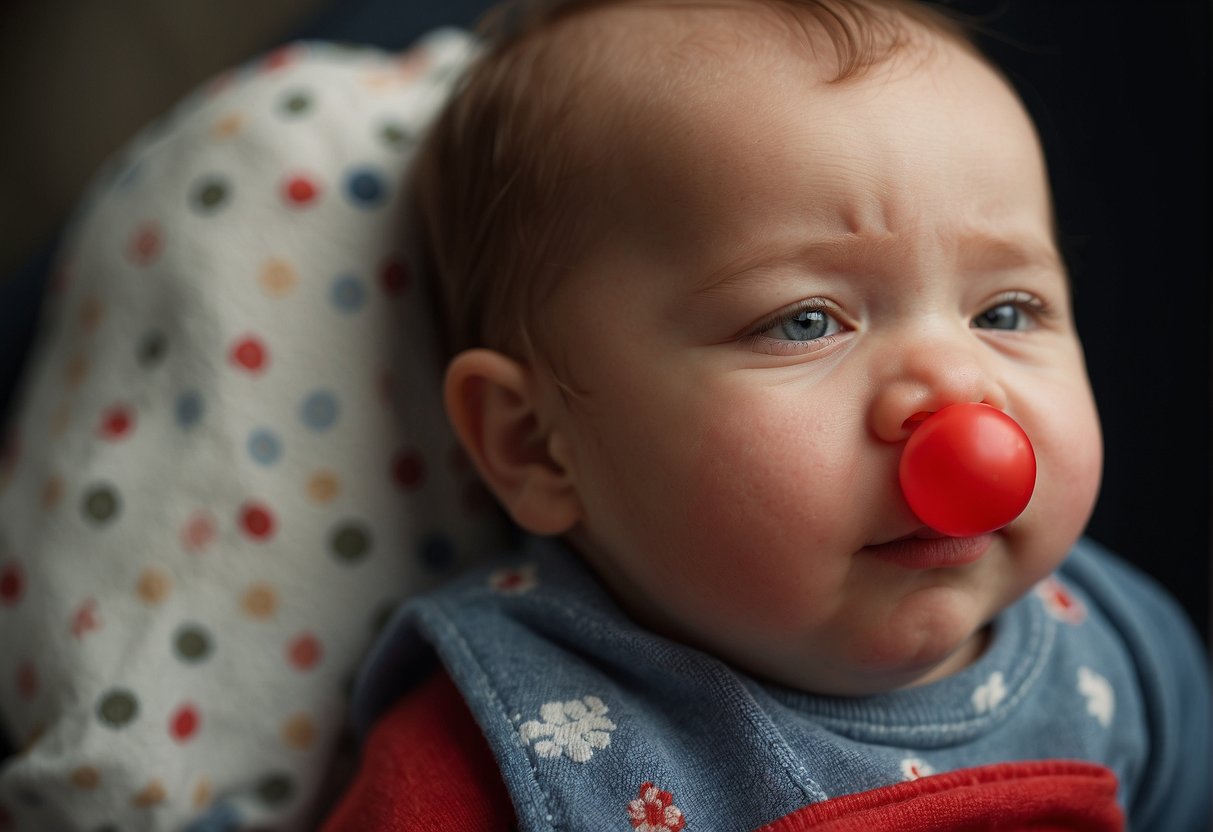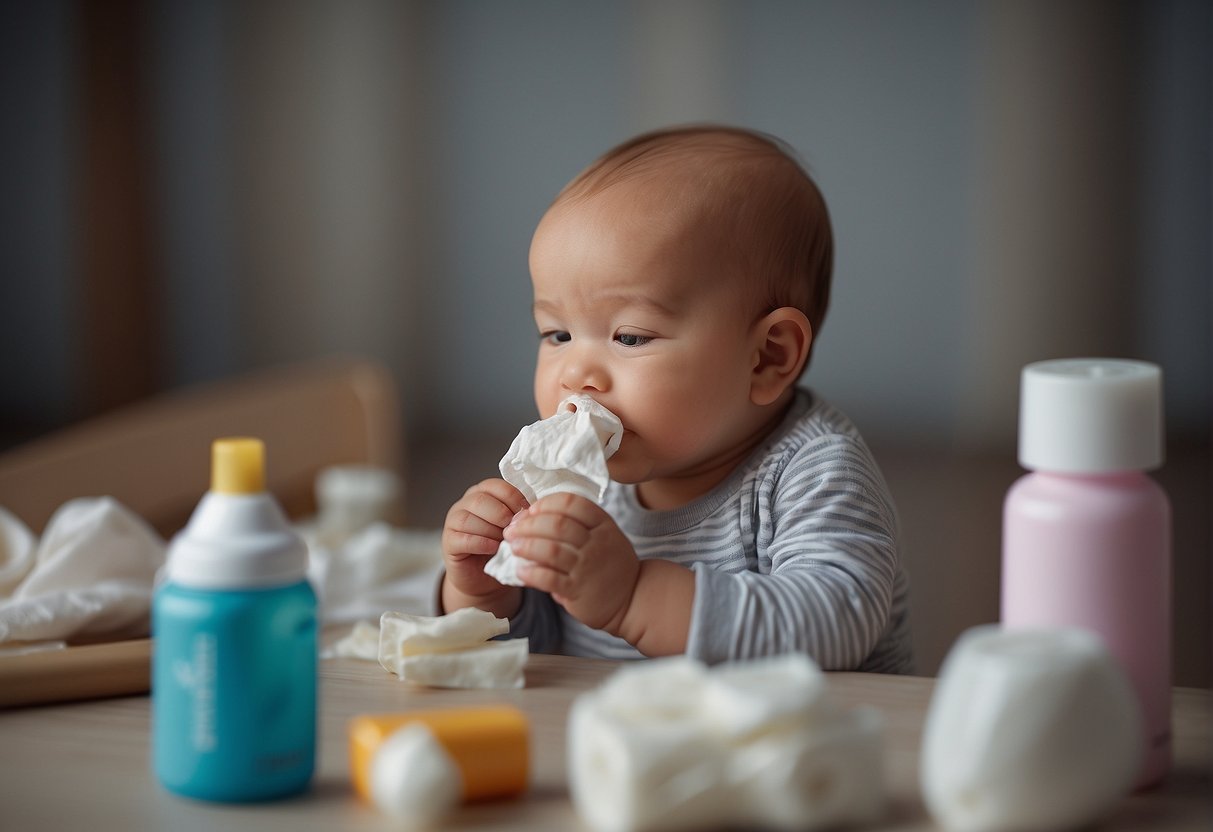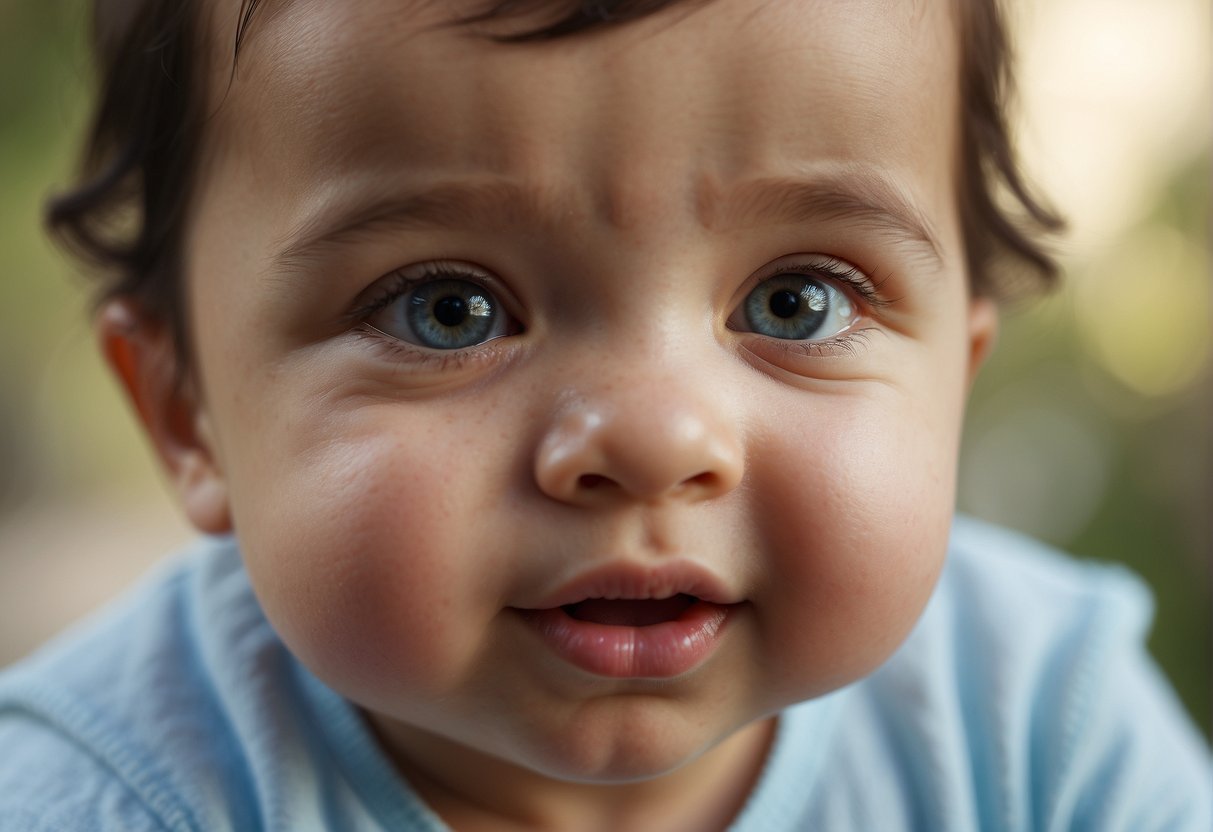Babies are cute, cuddly, and curious little beings. They are always exploring their surroundings, touching and feeling everything in sight. As they grow, they develop new habits, such as rubbing their noses. While this behavior is often harmless, it can be a sign of an underlying issue that requires attention.
Babies may rub their noses for a variety of reasons, including allergies, teething, congestion, and temperature changes. Some babies may also rub their noses as a way to self-soothe or when they are tired. Parents should pay attention to their baby’s behavior and look for other symptoms to determine the cause of their nose rubbing.
Key Takeaways
- Nose rubbing in babies can be a sign of an underlying issue, such as allergies or congestion.
- Immediate relief for a baby’s stuffy nose includes saline drops and a humidifier.
- If a baby’s nose rubbing is accompanied by other symptoms, such as fever or difficulty breathing, parents should consult a pediatrician.
Understanding Why Babies Rub Their Noses
Babies are known for their adorable behaviors, and one of them is rubbing their noses. Parents may wonder why their little ones do it so often. Understanding why babies rub their noses can help parents take appropriate measures to provide relief to their little ones.
Common Causes of Nasal Discomfort
There are several reasons why babies may rub their noses. One of the most common reasons is nasal discomfort. Infants and toddlers are more prone to nasal discomfort because their nasal passages are narrower and more sensitive than adults. Some common causes of nasal discomfort include:
-
Allergies: Allergies can cause nasal irritation, leading to itching and congestion in the nose. Babies may rub their noses to relieve the itchiness caused by allergies. Common allergens include pollen, dust mites, pet dander, and certain foods.
-
Cold and Flu: Cold and flu are common in babies and can cause nasal congestion, runny nose, and fever. Babies may rub their noses to relieve the discomfort caused by these symptoms.
-
Teething: Teething is another common cause of nasal discomfort in babies. The pain and discomfort caused by teething can radiate to the nose, causing babies to rub their noses.
-
Dry Air: Dry air can cause nasal irritation, leading to a congested nose. Babies may rub their noses to relieve the discomfort caused by dry air.
Signs of Nasal Irritation
It is important for parents to recognize the signs of nasal irritation in babies. Some common signs include:
-
Congested Nose: A congested nose is a common sign of nasal irritation in babies. If your baby is having difficulty breathing through their nose, it may be a sign of nasal irritation.
-
Itchy Nose: Babies may rub their noses if they are experiencing itchiness in their nose. If your baby is rubbing their nose frequently, it may be a sign of nasal irritation.
-
Skin Irritation: Frequent rubbing of the nose can cause skin irritation around the nose. If you notice redness or irritation around your baby’s nose, it may be a sign of nasal irritation.
In conclusion, understanding why babies rub their noses can help parents take appropriate measures to provide relief to their little ones. If you suspect that your baby is experiencing nasal discomfort, it is important to consult a pediatrician to determine the underlying cause and appropriate treatment.
Immediate Relief for a Baby’s Stuffy Nose
Babies are prone to getting stuffy noses, and this can be quite uncomfortable for them. One common sign of a stuffy nose in a baby is when they keep rubbing their nose. Fortunately, there are some simple things that parents can do to provide immediate relief for their baby’s stuffy nose.
Saline Solutions and Nasal Drops
Saline solutions and nasal drops can be very effective in providing immediate relief for a baby’s stuffy nose. These solutions help to moisturize the nasal passages, which can help to thin out mucus and make it easier to expel.
Parents can use saline nasal sprays, nose drops, or saline spray to help relieve their baby’s stuffy nose. These products are available over-the-counter and do not require a prescription. It is important to follow the instructions on the product label and use the recommended dosage.
Humidifiers and Steam
Humidifiers and steam are also effective in providing immediate relief for a baby’s stuffy nose. Humidifiers work by adding moisture to the air, which can help to soothe nasal passages and make it easier for babies to breathe.
Parents can also use steam to help relieve their baby’s stuffy nose. They can run a hot shower and sit in the bathroom with their baby for a few minutes or use a warm mist humidifier. However, it is important to keep the humidifier clean to prevent the growth of bacteria and mold.
In conclusion, providing immediate relief for a baby’s stuffy nose can be as simple as using saline solutions and nasal drops or humidifiers and steam. These remedies are safe and effective in providing relief for babies who are struggling with a stuffy nose.
When to Consult a Pediatrician
If a baby keeps rubbing their nose excessively, it could be a sign of an underlying health issue. While most cases are harmless and can be treated at home, parents should be aware of the symptoms that require immediate medical attention. In this section, we will discuss when to consult a pediatrician and seek professional medical advice.
Recognizing Symptoms of Serious Illness
If a baby has a fever above 100.4 degrees Fahrenheit, it is important to contact a healthcare professional immediately. A fever is a sign that the body is fighting an infection, and if left untreated, it can lead to serious health complications. In addition, if a baby has difficulty breathing, wheezing, or a persistent cough, it may be a sign of a respiratory infection or a sinus infection, which requires prompt medical attention.
Seeking Professional Medical Advice
If a baby keeps rubbing their nose and shows signs of discomfort, it may be due to an allergy or a cold. In such cases, parents should consult a pediatrician for a proper diagnosis and appropriate treatment. A pediatrician may recommend an allergy test to determine if the baby has an allergic reaction to a certain substance.
It is important to note that cold medications should not be given to babies under the age of two, as they can have serious side effects. In addition, parents should be aware of the risk of sudden infant death syndrome (SIDS). SIDS is a rare but serious condition that can occur in babies under the age of one, and parents should take steps to reduce the risk, such as placing the baby on their back to sleep.
In conclusion, if a baby keeps rubbing their nose excessively, parents should monitor their symptoms and seek professional medical advice if necessary. While most cases are harmless and can be treated at home, it is important to recognize the symptoms of serious illness and take appropriate action to ensure the baby’s health and well-being.
Preventative Measures and Home Care
Babies rubbing their noses can be a common occurrence, but there are some preventative measures and home care techniques that can help alleviate the issue.
Maintaining a Clean and Allergen-Free Environment
Keeping the baby’s environment clean and free of allergens is important in preventing nose rubbing. Regularly cleaning the baby’s room, especially during the winter months, can help prevent the buildup of mold, germs, and dust. Using a humidifier can also help keep the air moist, which can prevent dryness and irritation in the nose.
It is also important to keep the baby’s bedding clean and free of allergens. Using hypoallergenic bedding and pillows can help prevent allergies that may cause nose rubbing.
Safe Sleep and Rest Practices
Ensuring the baby gets enough rest and sleep is important in preventing nose rubbing due to tiredness. Swaddling the baby can help them feel secure and comfortable, which can promote better sleep. Additionally, ensuring that the baby’s sleeping environment is at a comfortable temperature can also promote better sleep.
It is important to note that pillows and other soft objects should not be placed in the baby’s sleeping area, as they can pose a suffocation hazard. Additionally, smoke and other irritants should be kept away from the baby’s sleeping area, as they can cause irritation in the nose and lead to rubbing.
If the baby has eczema, it is important to keep their skin moisturized to prevent dryness and itching, which can lead to nose rubbing.
By following these preventative measures and home care techniques, parents can help prevent nose rubbing in their babies and promote a healthy and comfortable environment for their little ones.
Long-Term Management of Nasal Health
Babies are prone to nasal problems, such as allergies, nasal congestion, and colds. Parents can take steps to manage their baby’s nasal health in the long term. The following subsections provide an overview of some of the best ways to manage nasal health in babies.
Understanding and Managing Allergies
Allergies can cause nasal congestion, sneezing, and coughing in babies. If a baby has allergies, it is important to identify the allergen and take steps to avoid it. Common allergens include dust mites, pet dander, and pollen. Parents can use air purifiers and vacuum cleaners with HEPA filters to reduce the amount of allergens in the air. They can also wash bedding and soft toys frequently to remove allergens.
If a baby has allergic rhinitis, antihistamines can be used to manage symptoms. However, it is important to use medications responsibly and under the guidance of a healthcare provider. Some antihistamines can cause drowsiness, which can be dangerous for babies.
Using Medications and Treatments Responsibly
Nasal aspirators, such as bulb syringes, can be used to remove mucus from a baby’s nasal passages. However, it is important to use them correctly and avoid causing injury to the baby’s delicate nasal tissues. Parents should also avoid using nasal decongestant sprays, as they can cause rebound congestion and other side effects.
Home remedies, such as saline nasal drops and steam inhalation, can also be used to manage nasal congestion. However, parents should be careful not to expose their baby to too much steam, as it can be dangerous. They should also ensure that their baby is well-hydrated, as fluids can help thin mucus and make it easier to clear.
In conclusion, managing a baby’s nasal health in the long term requires a combination of home remedies, medications, and environmental management strategies. Parents should work closely with their healthcare provider to develop a personalized plan that meets their baby’s individual needs.
Frequently Asked Questions
What could be causing my baby to rub their nose frequently?
There are many reasons why a baby might rub their nose frequently. Some common causes include allergies, dry skin, teething, and congestion. If your baby is rubbing their nose frequently, it is important to observe their behavior and see if there are any other symptoms present.
Is it normal for a baby to rub their nose and eyes together?
Yes, it is normal for a baby to rub their nose and eyes together. This behavior is usually a sign of fatigue or discomfort. However, if your baby is rubbing their nose and eyes together frequently, it could be a sign of an underlying issue such as allergies or an infection.
Can teething cause my baby to rub their nose more often?
Yes, teething can cause your baby to rub their nose more often. Teething can cause pain and discomfort in the gums, which can lead to your baby rubbing their nose to soothe the pain. If you suspect that your baby is teething, you can try giving them a teething toy or a cold washcloth to chew on.
Should I be concerned if my baby is rubbing their nose while sleeping?
If your baby is rubbing their nose while sleeping, it is usually nothing to be concerned about. However, if your baby is rubbing their nose excessively, it could be a sign of an underlying issue such as allergies or an infection. If you are concerned, you should consult your pediatrician.
How do I soothe my baby who is rubbing their nose and seems to be in distress?
If your baby is rubbing their nose and seems to be in distress, there are several things you can do to soothe them. You can try using a humidifier to add moisture to the air, which can help with congestion. You can also try using saline drops or a nasal aspirator to clear your baby’s nasal passages. If your baby is still in distress, you should consult your pediatrician.
What does it indicate if my baby rubs their nose after feeding?
If your baby rubs their nose after feeding, it could be a sign of reflux or an allergy to something in their formula or breast milk. If you suspect that your baby has reflux or an allergy, you should consult your pediatrician. They may recommend changes to your baby’s diet or medication to help alleviate their symptoms.

My name is Laura, and as a mother of two, I understand firsthand the joys and challenges of raising a child. That’s why I created this website, to provide a comprehensive and trustworthy source of information and support for new and expectant parents.
